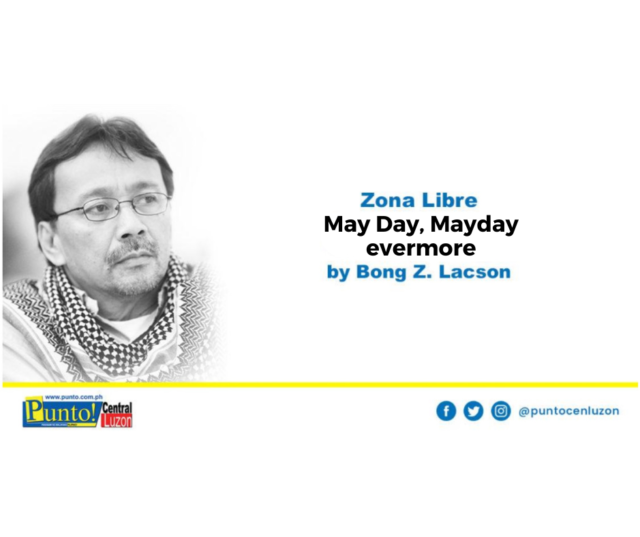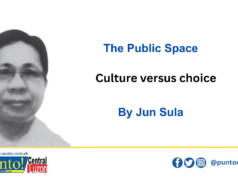MABUHAY ANG uring manggagawa!
Sahod itaas! Presyo ibaba!
Cries as old as capitalism itself reverberates across the country every May 1, May Day. But for the total absence of violence once intrinsic in the celebration of the day – heads bashed, limbs cracked, and backs smacked at each strike of the truncheon during police dispersal of rallyists; molotov bombings, etc. – the current celebrations make like any other of the previous ones.
The government still long in promises and short in deliveries of the “packages” to ameliorate the state of the workingman.
The labor sector demanding inherent rights to live in dignity, that is to work in order to live, rather than the other way ‘round.
The capitalists smug with their ever-spiraling profits.
Stasis. Raising to life anew the twice-dead Marx – in 1883, mortally; in 1991, ideologically with the demise of the Soviet Union. Thus: “Capital is dead labor, that, vampire-like, only lives by sucking blood from living labor.”
That line in Das Kapital finding manifestation in the poetic protest of Shelly’s Song to the Men of England, fittingly the birthplace of the Industrial Revolution and therefore the polluted fountainhead of labor:
“Men of England, wherefore plough
For the lords who lay ye low?
Wherefore weave with toil and care
The rich robes your tyrants wear?
The seed ye sow, another reaps;
The wealth ye find, another keeps;
The robes ye weave, another wears;
The arms ye forge, another bears.
Sow seed – but let no tyrant reap;
Find wealth – let no impostor heap;
Weave robes – let not the idle wear;
Forge guns – in your defense to bear.”
This, finding close parallel – hence, affirming the universality of the sufferings of workingmen – in the poignancy of the lines of poet-patriot Ka Amado Hernandez in his Bayang Malaya:
“Bisig na nagsaka’y siyang walang palay;
Nagtayo ng templo’y siyang walang bahay;
Dumungkal ng mina ng bakal at ginto ay baon sa utang;
Lingkod sa pabrika ng damit ay hubad ang mahal sa buhay.”
Lest, it be still misconstrued – as indeed it has long been – that the workingman’s struggle is pure communist thingy, the Church has had its own take on uplifting the laboring mass. As indeed, Leo XIII’s Rerum Novarum of 1891. Thus:
“The following duties . . . concern rich men and employers: Workers are not to be treated as slaves; justice demands that the dignity of human personality be respected in them, … gainful occupations are not a mark of shame to man, but rather of respect, as they provide him with an honorable means of supporting life.
It is shameful and inhuman, however, to use men as things for gain and to put no more value on them than what they are worth in muscle and energy. (#31)”
Further back into history, St. Ambrose, the fourth century bishop of Milan, took the Parable of the Dives with this censorious swing at the rich:
“The earth was established to be in common for all, rich and poor; why do ye rich alone arrogate it to yourselves as your rightful property?
You crave possession not so much for their utility to yourself, as because you want to exclude others from them. You are more concerned with despoiling the poor than with your own advantage. You think yourself injured if a poor man possesses anything which you consider a suitable belonging for a rich man; wherever belongs to others you look upon something of which you are deprived.”
Deprivation is the eternal state of the worker. That is fated in capitalist societies, engrossed as they are in “…production not merely the production of commodities … (but) essentially the production of surplus value.”
As Marx furthered: “All surplus value, whatever particular (profits, interests, rent) it may crystallize into, is in substance the materialization of unpaid labor.”
As it was, so it is: “The proletarians have nothing to lose but their chains. They have a world to win. Working Men of All Countries, Unite!”
May Day, Mayday, Marx evermore!





